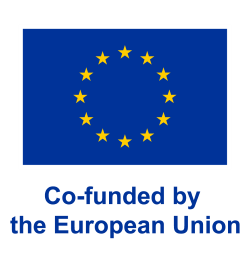Facts:
Project period: April 2025 to April 2028.
The project is funded by the Swedish Board of Agriculture through the EU's Maritime, Fisheries, and Aquaculture Program.


The Kingdom of Colors is an innovative research project aimed at developing new methods to monitor algal toxins in marine environments using visual signals such as algae pigmentation and patterns. With the help of autonomous underwater robots, multispectral cameras, and AI, we aim to improve the conditions for sustainable aquaculture.
Sudden outbreaks of algal toxins pose a potential challenge for aquaculture. These substances, which can be produced by certain species of algae and cyanobacteria, can negatively affect aquatic animals and, in some cases, also pose health risks to humans. They can also impact the marine ecosystem. Although the problem is increasing in certain areas globally, there is currently a lack of comprehensive and flexible methods to detect and manage algal toxins early within aquaculture.
Our overarching goal is to create new tools that enable the monitoring of toxin-producing algae. We also aim to learn more about how the visual signals of algae are perceived by other organisms in the aquatic environment. Through extensive field studies at aquaculture sites in various environmental and climate zones, we can validate the effectiveness of the technology under realistic conditions.
By understanding how algae signal toxicity, we contribute to the development of tools for a more resilient and environmentally friendly aquaculture sector in line with a changing climate.
To study signals and toxins, we map the relationship between algae's visual expressions and toxin production through laboratory studies, fieldwork, and advanced chemical analyses. We investigate whether the visual display of algae deter grazing fish and crustaceans, both in controlled aquariums and natural environments in the Stockholm Archipelago, on the West Coast, and in southern parts of Europe.
To create useful monitoring tools that also work remotely, we are developing and testing autonomous robots that, with the help of multispectral cameras and sensors, can detect and analyze the algae’s signals in real-time.
The project is led by the Swedish University of Agricultural Sciences (SLU) in collaboration with the Royal Institute of Technology (KTH) and international partners in Portugal.
The main team consists of:
Project period: April 2025 to April 2028.
The project is funded by the Swedish Board of Agriculture through the EU's Maritime, Fisheries, and Aquaculture Program.
